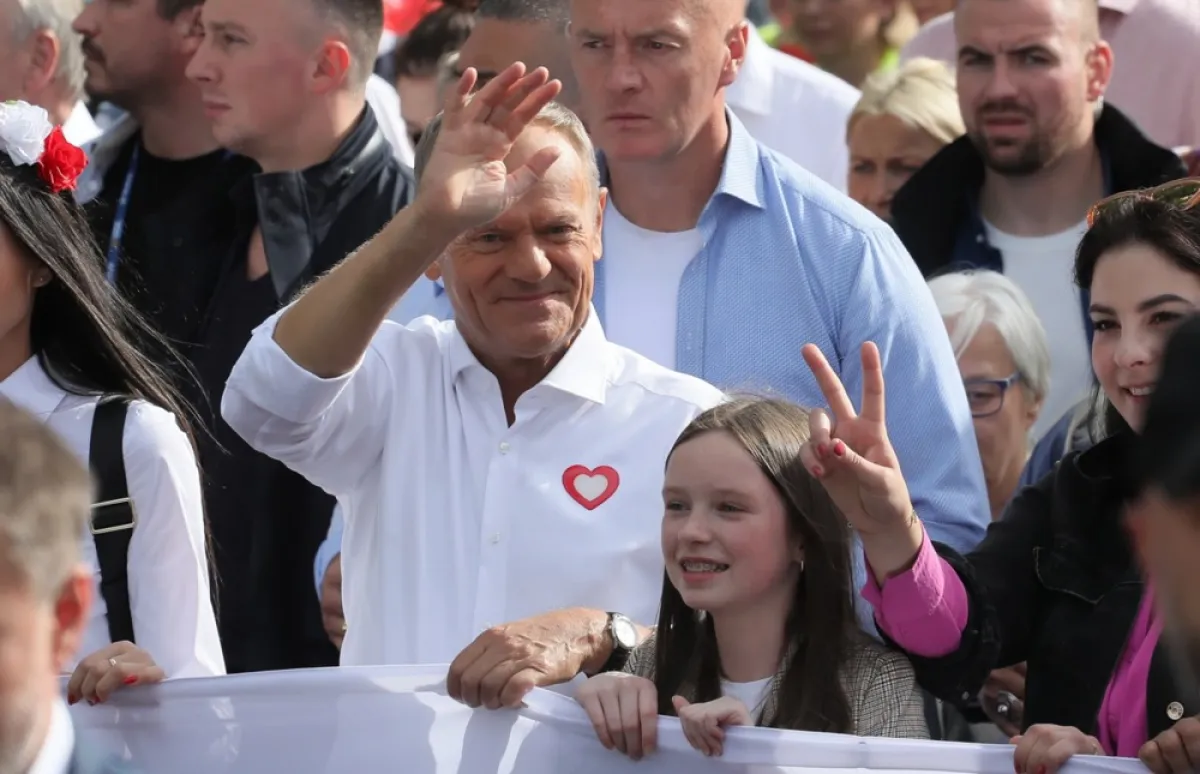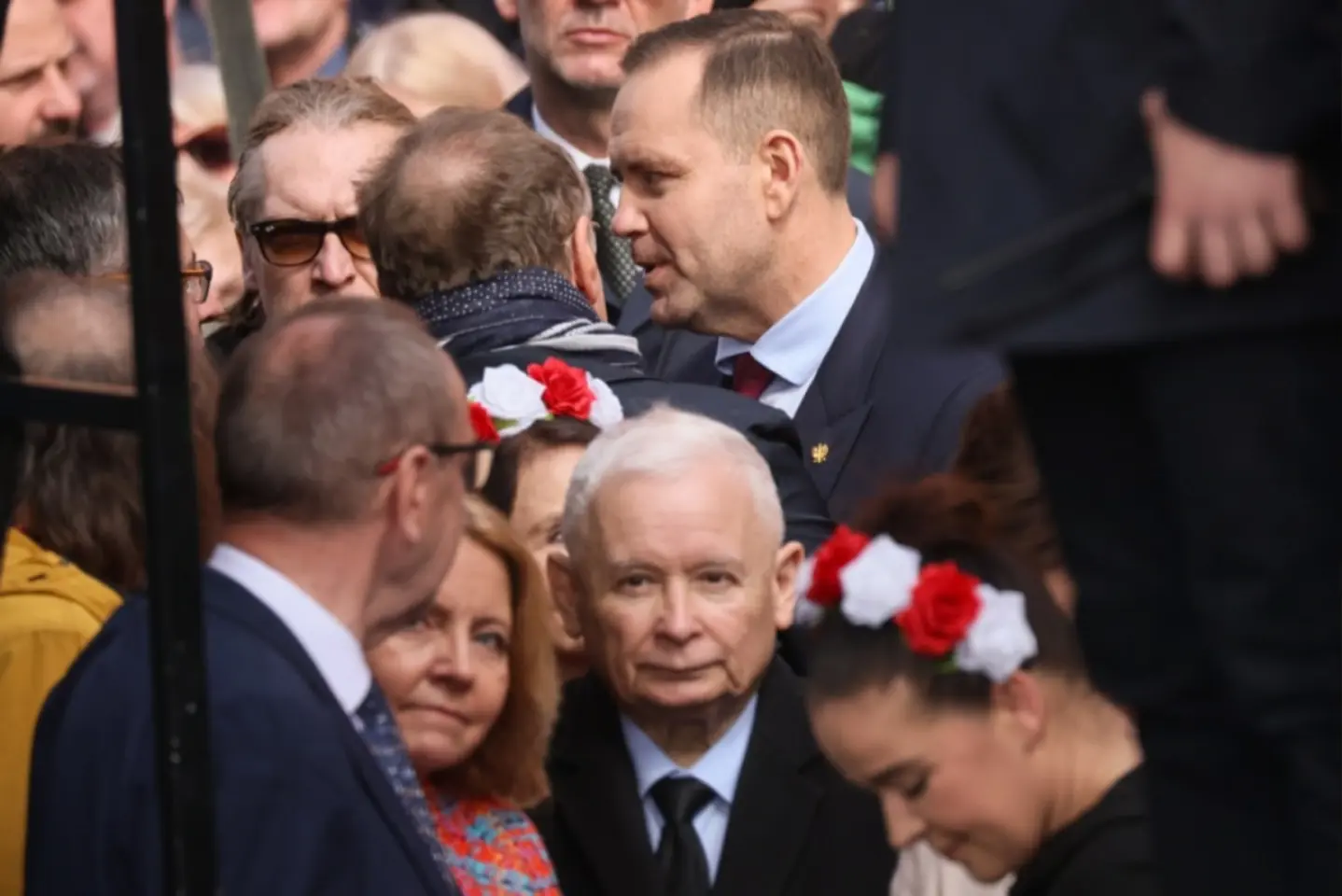
Michal Kukawski is a journalist with 20 years of experience. He worked for many years in Polish Public Radio as a reporter, he was a war correspondent in Iraq. 10 years ago he focused on writing, he became the head of the foreign affairs department in the Twój Styl magazine and the editor-in-chief of the Malemen magazine. This year he created his own award-winning podcast called Odpowiednik.

The Polish conservatives are heading for a second defeat in 6 months, this time in local elections. Meanwhile, as pro-Europeans are trying to reset the system, the pro-Russians are increasingly vocal.

After years of conservative rule, most Poles voted for the opposition parties. The conservatives are nonetheless poised to remain influent through the public institutions they control.

Poland’s liberal opposition hopes to break the ruling PiS’ long spell in power at the October 15 elections. The conservatives are betting on harshening their tone towards Ukraine, and the EU.

From cyberattacks to railway disruptions, Poland faced during the past several months a wave of incidents, many of them having the hallmarks of Russian intelligence.

One book and a documentary film claiming that Pope John Paul II knew about and covered sexual abuses against children lead to a huge scandal in his native Poland, where the former Pontiff is revered. Conservatives and the far-right scrambled to "defend the good name" of John Paul II and seem poised to use the scandal to their advantage in the upcoming elections.

Poland positioned itself as one of Ukraine’s main supporters: it allowed its territory to be used for arms deliveries while becoming a major arms supplier in its own right and convinced its NATO allies to support Ukraine even more. In parallel, Warsaw is engaged in a process of strengthening its own army. All this shows that Poland is turning into a key actor for the European security, an actor that is, however, increasingly exposed to the theses of Russian propaganda.

As Russia launched a massive attack on Ukraine in early 2022, millions of civilians fled the country and went West, out of harm’s way. Many chose to stay in Poland. They received some help from the state, but they mostly benefited from a network of volunteers providing everything from daily necessities to accommodation and jobs. Eleven months on, as some Poles are getting increasingly weary of refugees, the latter are still trying to adapt while dealing with the war traumas.

Karol Nawrocki victory in Poland’s presidential election is a coup for PiS leader, Jarosław Kaczyński. Nawrocki’s mission now would be to paralyze Donald Tusk’s pro-EU government.

Can a pro-European candidate still prevail in a country steadily turning to the nationalist right?

The election campaign in Poland is marked by bizarre candidates, debates unrelated to the president's duties, and the influence of Russian narratives and MAGA ideology.

The specter of foreign interference looms large over Poland’s upcoming presidential election. Will Warsaw face a rerun of the Romanian scenario, where Russian actors disrupted elections? And more importantly, is Poland prepared to withstand the onslaught?

For years, Poland has been forging close ties with both the US and Ukraine, regarding both as vital to its security. Changes in Washington’s policy are forcing Warsaw to rethink its future, but Polish politicians can’t seem to be able overcome their differences.

On a brisk January morning in Strasbourg, Donald Tusk, the Prime Minister of Poland, stood before the European Parliament to deliver what many have already labeled a defining speech of his career. With his characteristic blend of gravitas and urgency, Tusk addressed Europe’s place in an increasingly volatile world. Referring to the profound shifts in transatlantic relations under Donald Trump’s presidency, Donald Tusk paraphrased another US President, John F. Kennedy: “Ask not what America can do for Europe and its security—ask what we can do for it”. His words reverberated across the chamber, signaling the dawn of a (let’s hope) pivotal six months in European politics: Poland’s presidency of the Council of the European Union.